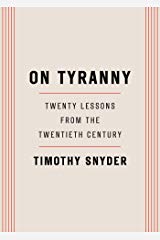Language of the Cosmos
February 13, 2020“What does it mean to be a cosmic being, a creature of divine light and welcoming darkness, an integral part of a universe that is rife with mystery and potential?”
Dr. Barbara Holmes—my co-teacher at the Living School—has revised her incredible book Race and the Cosmos. She suggests the language of cosmology could improve on older ways of thinking and talking about race and ethnicity. The trailer is a wonderful presentation of this idea.
-Fr Richard Rohr, Center for Action & Contemplation
Bankrupt.
‘More than 2,000 newspapers ceased production in the last 15 years, according to a recent think-tank report from the Brookings Institution.’
‘The inflection point for McClatchy’s bankruptcy was the failure to get pension relief from Congress. A pension solution appeared hours away from a legislative agreement late last year, before falling victim to partisan politics.
The likely new owners, if the court accepts the plan, would be led by hedge fund Chatham Asset Management LLC. They would operate McClatchy as a privately held company. More than 7 million shares of both publicly available and protected family-owned stock would be canceled.
Chatham Asset Management, a $4.3 billion hedge fund, owns the National Enquirer.’
Not only has the business model changed for newspapers, legacy companies carry large pension obligations that eat into cash flow and profits. McClatchy’s qualified pension covers more than 24,500 current and future retirees — many retired blue-collar workers who manned printing presses or loaded newspapers onto delivery trucks — supported by fewer than 2,800 active employees.
Between 2006 and 2018, McClatchy’s advertising revenue fell by 80 percent and daily print circulation fell by 58.6 percent. While the company has worked over three years to achieve a more sustainable 50-50 split of print vs. digital advertising, those gains couldn’t outpace the approaching pension and debt obligations.’
~
‘McClatchy owns 30 newspapers in 14 states. The publisher’s origins date to 1857, when it began publishing a four-page paper in Sacramento, California, following the California Gold Rush. That paper became The Sacramento Bee. McClatchy’s headquarters remains in Sacramento.’ [AP]
McClatchy Newspapers:
CALIFORNIA
- The Fresno Bee, Fresno
- Merced Sun-Star, Merced
- The Modesto Bee, Modesto
- The Sacramento Bee, Sacramento
- The Tribune, San Luis Obispo
FLORIDA
- Bradenton Herald, Bradenton
- El Nuevo Herald, Miami
- Miami Herald, Miami
- GEORGIA
- Ledger-Enquirer, Columbus
- The Telegraph, Macon
IDAHO
- Idaho Statesman, Boise
ILLINOIS
- Belleville News-Democrat, Belleville
KANSAS
- The Wichita Eagle, Wichita
KENTUCKY
- Lexington Herald-Leader, Lexington
MISSISSIPPI
- Sun Herald, Biloxi
MISSOURI
- The Kansas City Star, Kansas City
NORTH CAROLINA
- The Charlotte Observer, Charlotte
- The Herald-Sun, Durham
- The News & Observer, Raleigh
SOUTH CAROLINA
- The Beaufort Gazette, Beaufort
- The State, Columbia
- The Island Packet, Hilton Head Island
- The Sun News, Myrtle Beach
- The Herald, Rock Hill
PENNSYLVANIA
- Centre Daily Times, State College
TEXAS
- Fort Worth Star-Telegram, Fort Worth
WASHINGTON
- Bellingham Herald, Bellingham
- Tri-City Herald, Kennewick
- The Olympian, Olympia
- The News Tribune, Tacoma
https://www.mcclatchydc.com/news/nation-world/national/article240139933.html
E qual R ights A mendment
NPR
2.13.2020
‘The U.S. House has voted to remove the deadline on ratifying the Equal Rights Amendment in an attempt to revive the amendment. The 232-183 vote fell largely along party lines with five Republicans supporting the measure and zero Democrats opposing it.
Changing the deadline is a key part of one route that some ERA proponents believe would lead to the amendment becoming a part of the Constitution, but the path forward is uncertain.
The proposed amendment says simply, “Equality of rights under the law shall not be denied or abridged by the United States or by any state on account of sex,” and it has had a renaissance in recent years, with three states ratifying it since 2017.
However, the bill may well be stymied after this vote.
Senate Majority Leader Mitch McConnell, R-Ky., said earlier this month that he’s “personally not a supporter” of the amendment, and the Trump administration’s Office of Legal Counsel has said that it considers the ERA “expired.
The amendment, proposed in 1972, originally had a ratification deadline of 1979 attached to it. Congress later bumped that out to 1982, but by then, only 35 states had ratified it. Thirty-eight states need to ratify in order for a proposal to become an amendment.
Illinois and Nevada ratified the amendment in recent years, and in January, Virginia became the 38th state to ratify.
[Passed by Congress June 4, 1919, and ratified on August 18, 1920, the 19th amendment granted women the right to vote.]
“It’s not just about women; it’s about America,” said House Speaker Nancy Pelosi, D-Calif. “The ERA will strengthen America, unleashing the full power of women in our economy and upholding the value of equality in our democracy.”
Legal experts have argued that the amendment could protect women economically, like helping them get more equal pay and preventing pregnancy discrimination.’
https://www.youtube.com/watch?v=OIpTIPKTOkU&feature=emb_logo
FX dropped the trailer for “Mrs. America,” its nine-episode limited series starring Cate Blanchett as Phyllis Schlafly. If you didn’t know that the real-life Schlafly didn’t support the women’s liberation movement, you certainly will after watching this.
You can watch the two-minute, 16-second clip above and see just how deep Phyllis’ complex relationship with the attempts to ratify the Equal Rights Amendment goes.
The show, one of the first “FX on Hulu” series, will launch its first three episodes Wednesday, April 15 on FX’s streaming hub on Hulu, with new episodes airing each subsequent week on the platform.
Along with Blanchett, “Mrs. America” stars Rose Byrne as Gloria Steinem, Margo Martindale as Bella Abzug, Uzo Aduba as Shirley Chisholm, Elizabeth Banks as Jill Ruckelshaus and Tracey Ullman as Betty Friedan. Other cast members include Sarah Paulson, John Slattery, Jeanne Tripplehorn, Ari Graynor, Melanie Lynskey and Kayli Carter.
Here’s the official description for the series:
“Mrs. America” tells the story of the movement to ratify the Equal Rights Amendment (ERA), and the unexpected backlash led by a conservative woman named Phyllis Schlafly, played by Blanchett. Through the eyes of the women of that era – both Schlafly and second wave feminists Gloria Steinem, Betty Friedan, Shirley Chisholm, Bella Abzug and Jill Ruckelshaus – the series explores how one of the toughest battlegrounds in the culture wars of the 70s helped give rise to the Moral Majority and forever shifted our political landscape.
Matriarch v. Patriarch. Hofstede’s cultural dimensions theory: ‘femininity represents a preference for cooperation, modesty, caring for the weak, and quality of life…masculinity, heroism and material rewards.’
“Conversations with Exceptional Women”
Annual Conference with the Alturas Institute
Friday, September 10th & 11th, 2020
Community Library in Ketchum
‘Conversations with Exceptional Women is The Alturas Institute’s signature event for the promotion of gender equality. We gather women from across the nation, from various sectors, disciplines and industries to engage in relaxed, casual and stimulating conversations about issues confronting women and the world. Our speakers have included Supreme Court Justices, Nobel and Pulitzer prize-winning recipients, astronauts, award-winning journalists, writers and academics, and acclaimed film directors, producers and actors, as well as Olympic Gold Medalists, corporate leaders and government officials. This year’s theme, “The Higher Ground,” affords our speakers a platform to discuss personal and professional pursuit of their dreams and aspirations, with an eye on the challenges and hurdles that have been overcome, and those that remain.”
When Wood River Valley women pencil in their votes on their ballots today, they will be taking part in a time-honored ritual that was only granted to women 100 years ago.
“We’ve traveled a long way in the last 100 years with 10 million more Americans becoming eligible to vote with the ratification of the 19th amendment in June 1919,” says Constitutional Scholar David Adler. “But why did it take so long? It’s because women were dealt their cards from the bottom of the deck.”
The centennial of the 19th amendment granting women the right to vote is near and dear to Adler’s heart.
He discussed the fascinating tale of how women got the vote–a story punctuated with intrigue–at a presentation at Ketchum’s Community Library. And he talked about it during the annual Conversations with Exceptional Women conference held by the Alturas Institute in September.
American women could not buy or sell property during the nation’s infancy. They were “under the cover” of their husbands, thanks to old English law.
“The thinking was that women didn’t need to speak for themselves—their husbands could,” Adler said. “A woman’s place was to have children and keep hearth and home. Politics were considered too dirty for fragile women.”
Women didn’t necessarily agree.
None other than Abigail Adams told her husband John, the second president of the United States, “Don’t forget the ladies,” as he headed out to craft a new nation at the Continental Congress.
He—and others—did forget, or dismiss, the ladies. And 70-some years later in 1848 women rallied to hold the first national convention to promote women’s rights at Seneca Falls, N.Y. “A few good men” also attended, including Frederick Douglass, the former slave-turned-abolitionist, noted Adler.
They penned something resembling the Declaration of Independence, saying that all men AND women are created equal and that women should have the right to vote.
That, too, was ignored by the men in power. But Susan B. Anthony managed to turn the tables when she convinced U.S. Sen. Aaron Sargent (R-Calif.) to introduce women’s suffrage to Congress during a long train ride from California to Washington, D.C., in 1872. But, again, white males had no interest in passing the Susan B. Anthony amendment when it was finally introduced in 1878.
Out west it was a different matter. The first territorial legislature of the Wyoming Territory granted women suffrage in 1869, with a Laramie woman becoming the first to cast a vote in September 1870. Colorado followed suit in 1893 and Utah and Idaho in 1896.
“The men outnumbered the women 2-1 in the state of Wyoming in the late 19th century. And they thought giving women the right to vote might attract more women to the state,” Adler said.
By the 1916 election, 16 states had given women the right to vote, prompting Woodrow Wilson to realize that he and others could be defeated if they did not support it.
In 1918 he delivered a speech noting that women had filled the jobs of men who had gone to war, their performance critical to the nation’s security, and so they deserved the right to vote. Moreover, he added, women—not men—had given birth to those serving in the army.
Congress passed the amendment but it needed 36 states to ratify it. With 35 states saying “Aye,” all eyes turned to Tennessee. as the only one left that could take a vote that year.
Connecticut, Vermont, North Carolina and Florida refused to consider the resolution. And the rest of the Deep South was entrenched against it.
The Tennessee governor called a special session and armies of suffragettes and anti-suffragette lobbyists invaded the Volunteer State. The War of the Roses erupted as lobbyists from Jack Daniels showed up, pouring plenty of liquid bribes against the amendment for fear women would continue prohibition if they got the right to vote.
In fact, bribes to vote against the amendment became so prolific that suffragettes were placed at railroad stations to turn back anyone approaching an amendment supporter with a suitcase.
“Those against felt the passage of the 14th amendment giving black Americans the right to vote had put them under the subjugation of blacks,” Adler said. “We will not let Tennessee be terrorized by women, especially black woman, they said. Let’s not let down our southern neighbors, they said. Women have a place—it’s in the home. If they vote who’s going o be at home to raise the children?”
At one point, the governor thought he had the vote only to have the speaker of the House change his mind after being offered the promise of governorship if he would keep the amendment from being passed.
On the eve of the vote, anti-suffragettes sent fake telegrams to amendment supporters telling them, they needed to return home because their wife or child was on their death beds.
When one amendment supporter received a telegram that his wife was dying, the House minority leader arranged for a wealthy man to charter a private train so the legislator could get home and, if his wife was okay, return in time for the vote.
When another received a telegram that his baby was dying, another private train was chartered for him so he could sneak out at night, rush home and rush back.
As the vote neared its conclusion, it was tied 48-48, despite lobbyists who had been allowed to come forward, Jack Daniels in hand and money in their pockets.
The tiebreaker was a 24-year-old named Harry Burns, who had been the youngest ever elected to the legislature.
He wore a red rose on his lapel signifying his opposition to ratifying the amendment. And he had voted against it twice during earlier roll calls.
But, when it came his time to vote this time, he blurted out a quick “Aye.” And with that the 70-year battle for suffrage came to a close
“In his suit pocket was a letter from his mother Febb E. Burn in which she asked him to ‘be a good boy’ and vote for the amendment,” Adler said. “She wrote, ‘As you know, I’m an advocate for the 19th amendment. I hope you will do the right thing and vote for America.’ ”
We have been naive as a country not to believe him.
He said he would destroy the institutions, and he is.
“Democracy dies in darkness.”
“Post-truth is pre-fascism.”
―
“The United States is so powerful that the only country capable of destroying her might be the United States herself, which means that the ultimate terrorist strategy would be to just leave the country along. That way, America’s ugliest partisan tendencies could emerge unimpeded by the unifying effects of war.”
-Sebastian Junger, On Homecoming and Belonging
Trump seeks to bend the executive branch as part of impeachment vendetta
“I’ve never seen so many prosecutors, including those who aren’t political or those who haven’t been following this situation closely, go to red alert so quickly,” said Joyce White Vance, a former U.S. attorney in the Obama administration. “The reason is this: If a president can meddle in a criminal case to help a friend, then there’s nothing that keeps him from meddling to harm someone he thinks is his enemy. That means that a president is fully above the law in the most dangerous kind of way. This is how democracies die.”
“Now he understands how to use the full powers of the presidency. The pearl-clutchers better get used to it.” – Former chief strategist Stephen K. Bannon
November 10, 2016:
Autocracy: Rules for Survival
https://www.nybooks.com/daily/2016/11/10/trump-election-autocracy-rules-for-survival/
“Thank you, my friends. Thank you. Thank you. We have lost. We have lost, and this is the last day of my political career, so I will say what must be said. We are standing at the edge of the abyss. Our political system, our society, our country itself are in greater danger than at any time in the last century and a half. The president-elect has made his intentions clear, and it would be immoral to pretend otherwise. We must band together right now to defend the laws, the institutions, and the ideals on which our country is based.”
That, or something like that, is what Hillary Clinton should have said on Wednesday. Instead, she said, resignedly,
We must accept this result and then look to the future. Donald Trump is going to be our president. We owe him an open mind and the chance to lead. Our constitutional democracy enshrines the peaceful transfer of power. We don’t just respect that. We cherish it. It also enshrines the rule of law; the principle [that] we are all equal in rights and dignity; freedom of worship and expression. We respect and cherish these values, too, and we must defend them.
Hours later, President Barack Obama was even more conciliatory:
We are now all rooting for his success in uniting and leading the country. The peaceful transition of power is one of the hallmarks of our democracy. And over the next few months, we are going to show that to the world….We have to remember that we’re actually all on one team.
[…]
The second falsehood is the pretense that America is starting from scratch and its president-elect is a tabula rasa. Or we are: “we owe him an open mind.” It was as though Donald Trump had not, in the course of his campaign, promised to deport US citizens, promised to create a system of surveillance targeted specifically at Muslim Americans, promised to build a wall on the border with Mexico, advocated war crimes, endorsed torture, and repeatedly threatened to jail Hillary Clinton herself. It was as though those statements and many more could be written off as so much campaign hyperbole and now that the campaign was over, Trump would be eager to become a regular, rule-abiding politician of the pre-Trump era.
Rule #1: Believe the autocrat. He means what he says. Whenever you find yourself thinking, or hear others claiming, that he is exaggerating, that is our innate tendency to reach for a rationalization. This will happen often: humans seem to have evolved to practice denial when confronted publicly with the unacceptable. Back in the 1930s, The New York Times assured its readers that Hitler’s anti-Semitism was all posture. More recently, the same newspaper made a telling choice between two statements made by Putin’s press secretary Dmitry Peskov following a police crackdown on protesters in Moscow: “The police acted mildly—I would have liked them to act more harshly” rather than those protesters’ “liver should have been spread all over the pavement.” Perhaps the journalists could not believe their ears. But they should—both in the Russian case, and in the American one. For all the admiration Trump has expressed for Putin, the two men are very different; if anything, there is even more reason to listen to everything Trump has said. He has no political establishment into which to fold himself following the campaign, and therefore no reason to shed his campaign rhetoric. On the contrary: it is now the establishment that is rushing to accommodate him—from the president, who met with him at the White House on Thursday, to the leaders of the Republican Party, who are discarding their long-held scruples to embrace his radical positions.
Rule #3: Institutions will not save you. It took Putin a year to take over the Russian media and four years to dismantle its electoral system; the judiciary collapsed unnoticed. The capture of institutions in Turkey has been carried out even faster, by a man once celebrated as the democrat to lead Turkey into the EU. Poland has in less than a year undone half of a quarter century’s accomplishments in building a constitutional democracy.
Of course, the United States has much stronger institutions than Germany did in the 1930s, or Russia does today. Both Clinton and Obama in their speeches stressed the importance and strength of these institutions. The problem, however, is that many of these institutions are enshrined in political culture rather than in law, and all of them—including the ones enshrined in law—depend on the good faith of all actors to fulfill their purpose and uphold the Constitution.
Rule #6: Remember the future. Nothing lasts forever. Donald Trump certainly will not, and Trumpism, to the extent that it is centered on Trump’s persona, will not either. Failure to imagine the future may have lost the Democrats this election. They offered no vision of the future to counterbalance Trump’s all-too-familiar white-populist vision of an imaginary past. They had also long ignored the strange and outdated institutions of American democracy that call out for reform—like the electoral college, which has now cost the Democratic Party two elections in which Republicans won with the minority of the popular vote. That should not be normal. But resistance—stubborn, uncompromising, outraged—should be.
“The Founding Fathers tried to protect us from the threat they knew, the tyranny that overcame ancient democracy. Today, our political order faces new threats, not unlike the totalitarianism of the twentieth century. We are no wiser than the Europeans who saw democracy yield to fascism, Nazism, or communism. Our one advantage is that we might learn from their experience.
On Tyranny is a call to arms and a guide to resistance, with invaluable ideas for how we can preserve our freedoms in the uncertain years to come.”
“The president is a nationalist, which is not at all the same thing as a patriot. A nationalist encourages us to be our worst, and then tells us that we are the best. A nationalist, “although endlessly brooding on power, victory, defeat, revenge,” wrote Orwell, tends to be “uninterested in what happens in the real world.” Nationalism is relativist, since the only truth is the resentment we feel when we contemplate others. As the novelist Danilo Kiš put it, nationalism “has no universal values, aesthetic or ethical.” A patriot, by contrast, wants the nation to live up to its ideals, which means asking us to be our best selves. A patriot must be concerned with the real world, which is the only place where his country can be loved and sustained. A patriot has universal values, standards by which he judges his nation, always wishing it well—and wishing that it would do better. Democracy”
“A nationalist will say that “it can’t happen here,” which is the first step toward disaster. A patriot says that it could happen here, but that we will stop it.”
“Modern tyranny is terror management. When the terrorist attack comes, remember that authoritarians exploit such events in order to consolidate power. The sudden disaster that requires the end of checks and balances, the dissolution of opposition parties, the suspension of freedom of expression, the right to a fair trial, and so on, is the oldest trick in the Hitlerian book. Do not fall for it.”
“The mistake is to assume that rulers who came to power through institutions cannot change or destroy those very institutions—even when that is exactly what they have announced that they will do.”
“More than half a century ago, the classic novels of totalitarianism warned of the domination of screens, the suppression of books, the narrowing of vocabularies, and the associated difficulties of thought. In Ray Bradbury’s Fahrenheit 451, published in 1953, firemen find and burn books while most citizens watch interactive television. In George Orwell’s 1984, published in 1949, books are banned and television is two-way, allowing the government to observe citizens at all times. In 1984, the language of visual media is highly constrained, to starve the public of the concepts needed to think about the present, remember the past, and consider the future. One of the regime’s projects is to limit the language further by eliminating ever more words with each edition of the official dictionary.”
“You submit to tyranny when you renounce the difference between what you want to hear and what is actually the case.”










